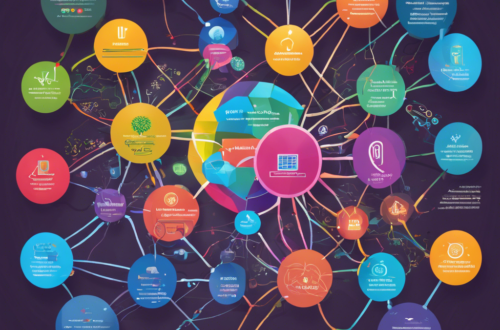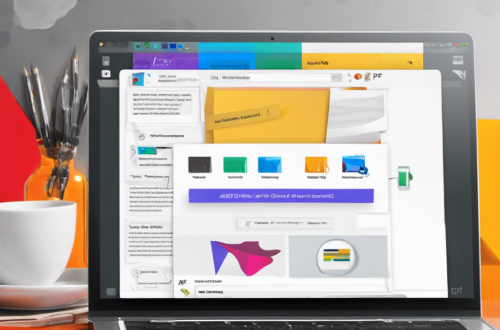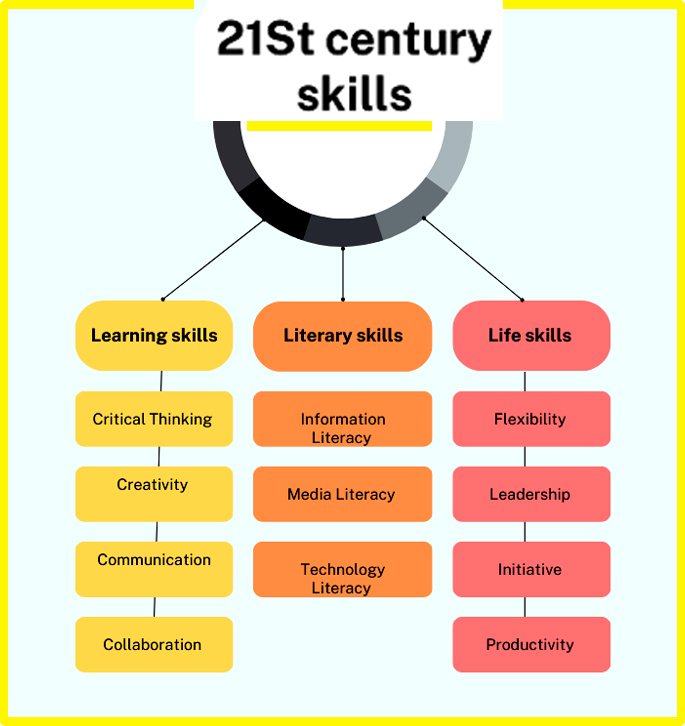
Introduction
Definition of 21st Century Skills
In an ever-evolving world, 21st Century Skills refer to a collection of competencies that equip students to thrive in today’s dynamic environment. These skills encompass critical thinking, creativity, collaboration, and communication, among others. They form the foundation for tackling real-world challenges.
Significance of 21st Century Skills for Students
The importance of these skills cannot be overstated. They enable students to:
- Adapt to new technologies
- Solve complex problems
- Work effectively in teams
For instance, consider a group project where students combine their diverse skills to brainstorm innovative solutions. This collaborative effort not only deepens their learning but also prepares them for future workplace dynamics.
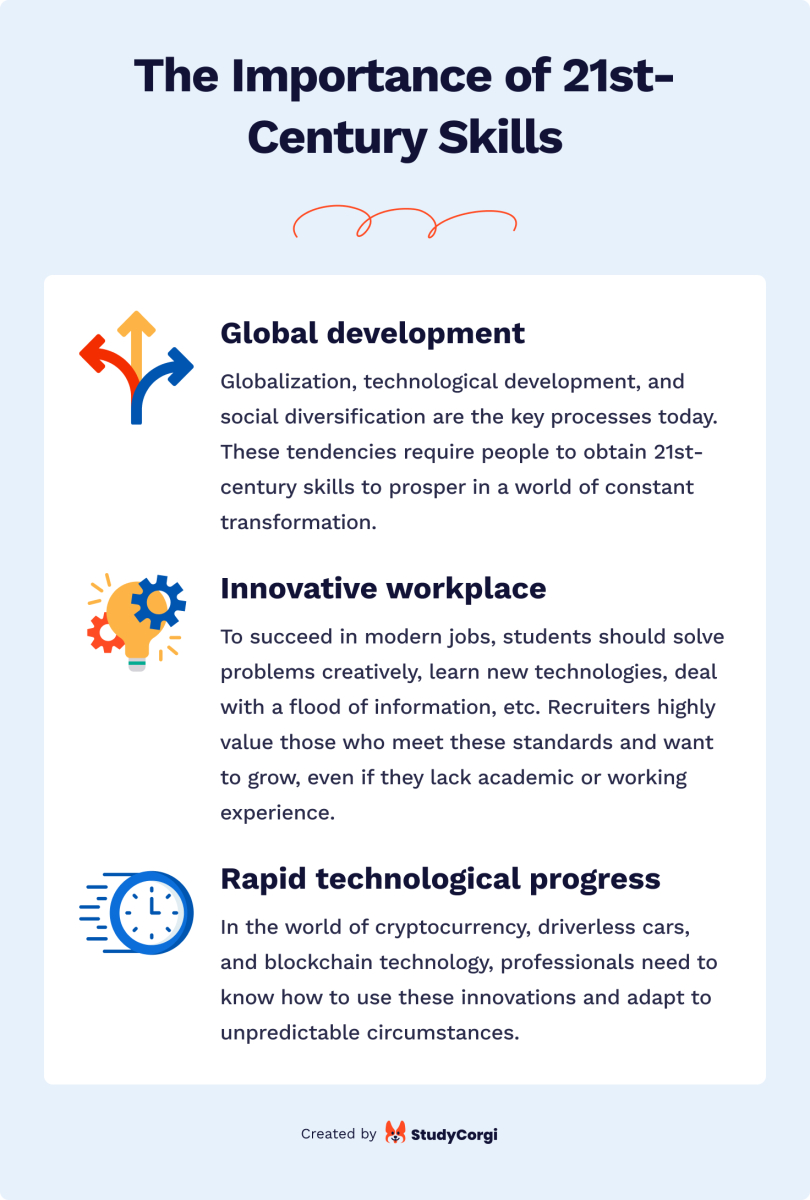
Critical Thinking and Problem Solving
Analytical Thinking
Analytical thinking is the ability to break down complex information into manageable parts. It empowers students to assess data and make informed decisions. For instance, when analyzing a historical event, students can consider various perspectives and outcomes, enhancing their understanding.
Creative Problem Solving
On the flip side, creative problem solving encourages students to think outside the box. This skill allows them to generate innovative solutions to challenges.
- Example: Imagine a science project where students need to solve an environmental issue. They might brainstorm unique approaches, like developing eco-friendly products.
Combining analytical and creative thinking fosters a well-rounded approach to problem-solving, essential for success in any field.

Communication and Collaboration
Effective Communication
Effective communication is a cornerstone of successful interactions. It enables students to convey their ideas clearly, whether through writing, speaking, or digital platforms. For example, a student presenting a project must articulate their thoughts to engage their audience effectively.
Teamwork and Collaboration Skills
Complementing communication is teamwork, where collaboration skills shine. Working in teams teaches students to:
- Share responsibilities
- Respect diverse viewpoints
- Reach consensus
A personal anecdote could reflect a time when a group project unveiled the power of collaboration, as everyone’s strengths combined to create a compelling outcome. Mastering these skills not only enhances learning but also prepares students for future workplace environments.

Technological Literacy
Digital Skills
In today’s digital age, possessing strong digital skills is essential. Students must become proficient in using various software, applications, and online platforms. For example, learning to navigate spreadsheets can empower students to analyze data effectively.
Information Literacy
Alongside digital skills, information literacy is crucial. This skill allows students to discern credible sources from unreliable ones, which is vital for research projects.
- Tip: Encourage students to check multiple sources to verify information.
A compelling classroom discussion around media bias could illustrate how to evaluate content critically, preparing students for informed decision-making in their lives. Mastering these literacy skills fosters confidence in navigating the vast digital landscape.

Adaptability and Flexibility
Resilience
Adaptability and flexibility are key traits for success in an ever-changing world. Resilience, or the ability to bounce back from setbacks, empowers students to face challenges with confidence. For instance, when a science project doesn’t go as planned, resilient students learn to reassess and refine their approach rather than giving up.
Agility
Equally important is agility, which refers to the ability to pivot quickly when circumstances change.
- Example: During group assignments, a quick change in topic or direction requires students to adapt their roles and strategies swiftly.
Engaging in activities like improvisational games can enhance agility, teaching students to think on their feet. Together, these skills will prepare students to navigate the complexities of their future endeavors.

Initiative and Entrepreneurship
Taking Initiative
Taking initiative is a vital aspect of both personal and professional growth. Students who proactively seek opportunities, like organizing a community service event, showcase their leadership skills and determination. This not only enhances their portfolios but also instills a sense of responsibility.
Entrepreneurial Mindset Development
Alongside initiative, developing an entrepreneurial mindset can spark creativity and innovation.
- Example: Consider a student creating a small business to fulfill a local need, demonstrating problem-solving and business acumen.
Encouraging brainstorming sessions where students propose and develop their own ideas can cultivate this mindset. Together, these skills empower students to pursue their passions and navigate the complexities of modern career landscapes.
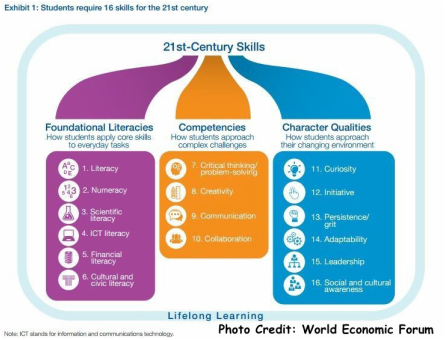
Cultural Awareness and Global Citizenship
Diversity Appreciation
Cultural awareness is a cornerstone of global citizenship. Encouraging students to appreciate diversity fosters an inclusive environment where everyone feels valued. For instance, hosting cultural exchange days allows students to share their backgrounds and traditions, enriching the entire class’s understanding.
Global Competence
Alongside appreciation, developing global competence prepares students to thrive in an interconnected world.
- Example: Engaging in projects that address global issues, such as climate change or poverty, helps students understand their role as global citizens.
Participating in international collaborations can further enhance this competence, nurturing empathy and respect for different perspectives. Together, these skills prepare students to contribute positively to a diverse global community.

Conclusion
Importance of Cultivating 21st Century Skills
In today’s fast-paced world, cultivating 21st Century Skills is imperative for student success. These skills not only enhance academic performance but also prepare students for real-life challenges and opportunities. For example, a student skilled in communication can better express ideas, leading to collaborative achievements.
Future Outlook for Students
Looking ahead, students equipped with these skills are poised for brighter futures.
- Advantage: They will adapt quickly to evolving technologies and workplace dynamics.
As they step into the world, their ability to think critically, collaborate, and innovate will mark them as leaders and change-makers. Fostering these essential skills today ensures they are ready to tackle tomorrow’s challenges with confidence.
